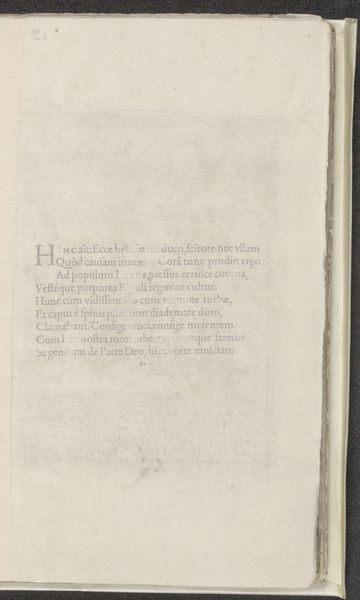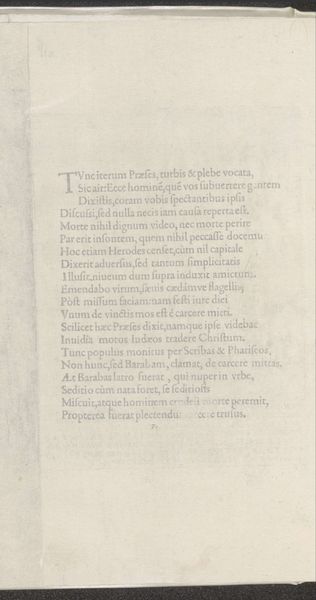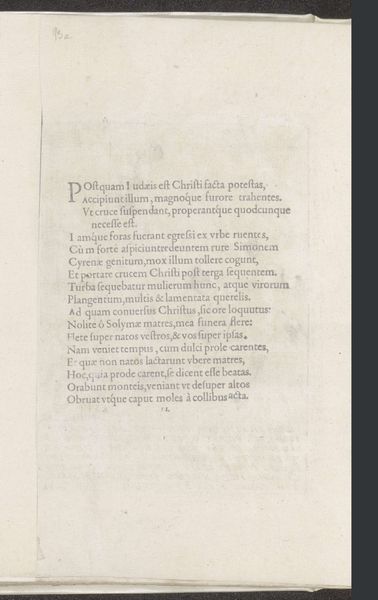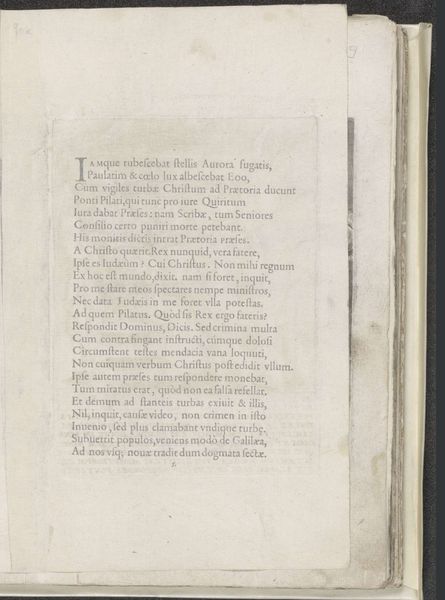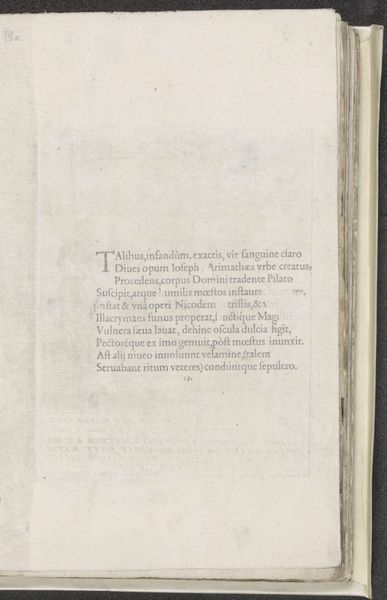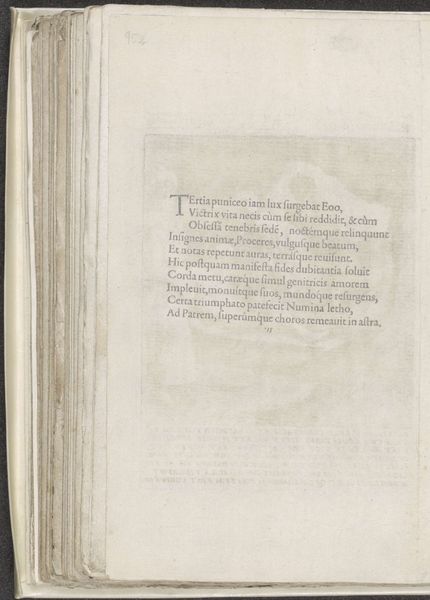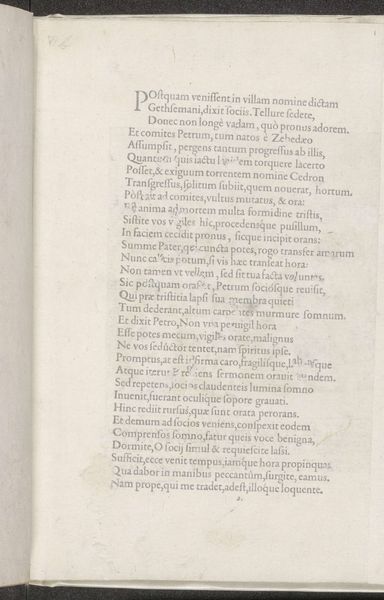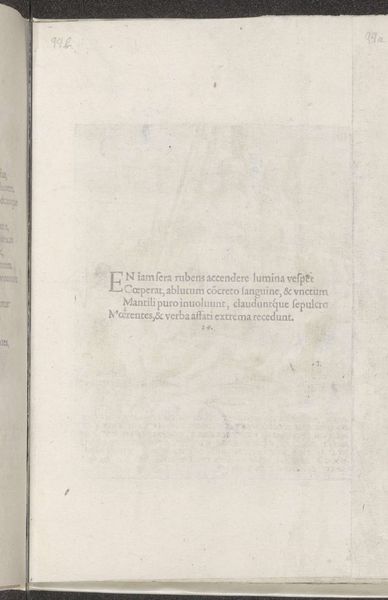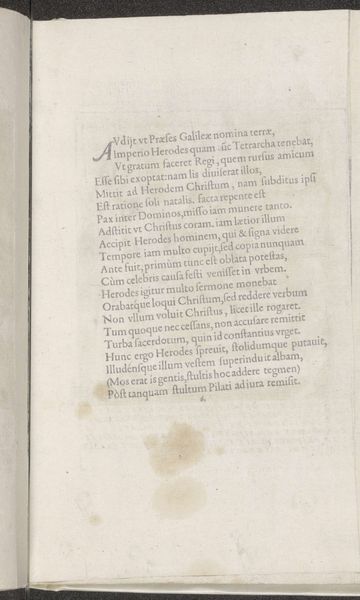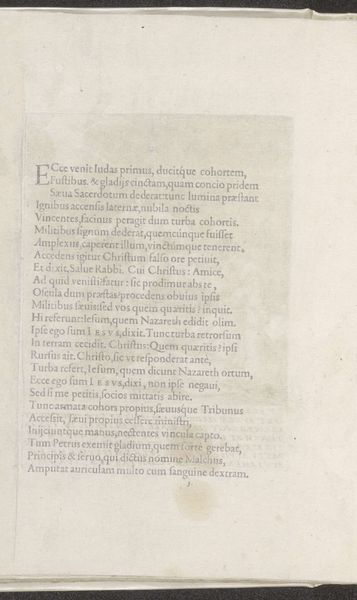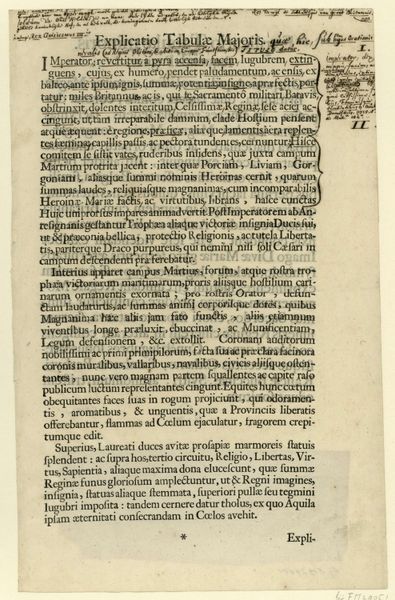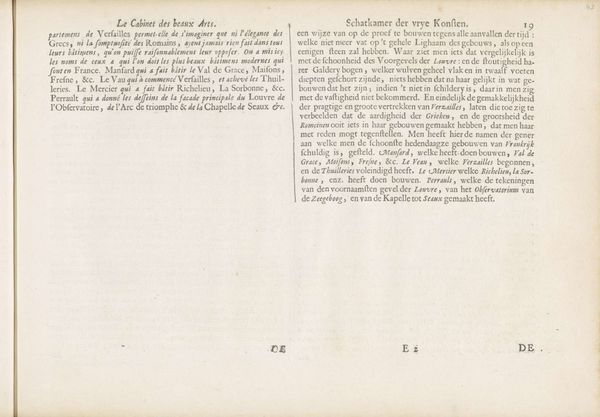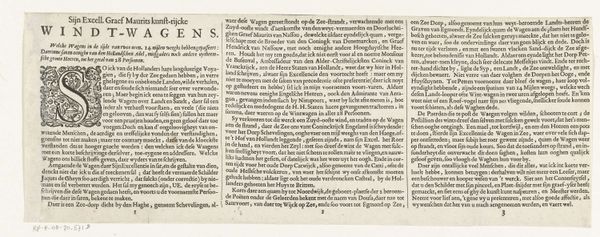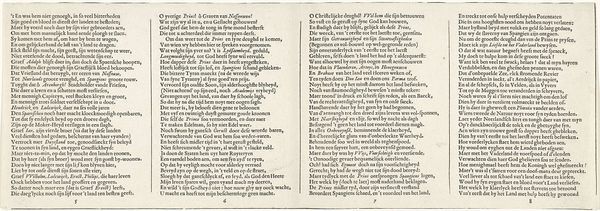
print, typography
#
aged paper
#
light pencil work
# print
#
sketch book
#
hand drawn type
#
11_renaissance
#
personal sketchbook
#
typography
#
hand-drawn typeface
#
pen-ink sketch
#
pen work
#
sketchbook drawing
#
sketchbook art
Copyright: Rijks Museum: Open Domain
This text by Domenico Mancini presents a narrative about Pontius Pilate. It is a meditation on the gesture of washing one's hands, a symbolic act laden with significance. Pilate's washing of hands is rooted in the Old Testament, yet Mancini’s text is a cultural translation of this ancient ritual. Think of other moments when water is used to cleanse ritualistically, from baptism to purification rites in ancient Greece. The act is a potent symbol of disavowal, an attempt to cleanse oneself of moral responsibility. But the crowd's response, invoking a curse upon themselves and their descendants, suggests a shared guilt, a collective burden. This motif reappears throughout history, each time subtly altered, its meaning refracted through the lens of different cultures and eras. The image speaks to a universal human desire to evade responsibility. The gesture of absolution becomes a haunting reminder of our inescapable entanglement in the web of human actions. The psychological weight of guilt is not so easily washed away.
Comments
No comments
Be the first to comment and join the conversation on the ultimate creative platform.
